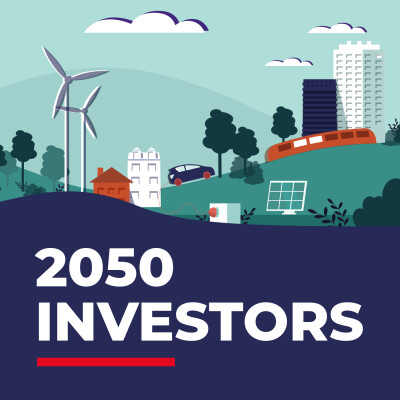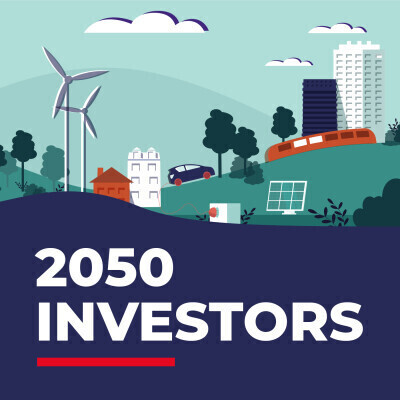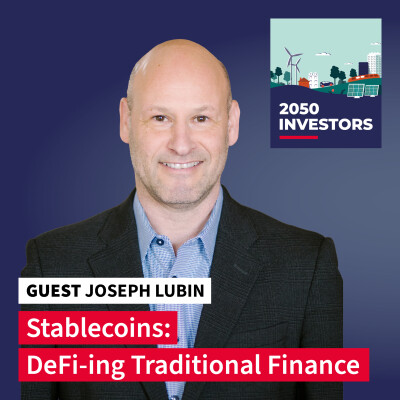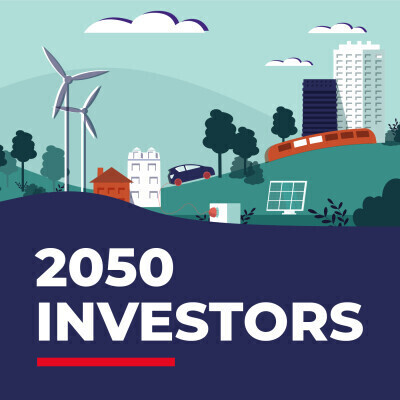- Speaker #0
Dear listeners, this episode was originally released in 2024. At that time, people were concerned about sovereign debt and its sustainability, interest rates, and the whatever-it-takes approach to budgeting. A year later, everything has changed. Well, except for these core issues. This just goes to show that some habits die hard.
- Speaker #1
Much like greenhouse gas emissions.
- Speaker #0
That's right, Siri. I invite our listeners not only to reflect on what was said a year ago, but also to consider the current debate. Happy podcasting.
- Speaker #2
Within our mandate, the ECB is ready to do whatever it takes to preserve the euro. And believe me, it will be enough.
- Speaker #0
These are the famous words by ECB President Mario Draghi at the height. of the Eurozone sovereign debt crisis in 2012. For Greece, Portugal, Italy and Spain, they marked the beginning of the end of the crisis of confidence.
- Speaker #3
It seems like you are reminiscing about the past, in search of lost time?
- Speaker #0
No, I'm not reading Marcel Proust's 2,400-page book to muse about the persistence of memory. But I've been thinking about The Economist magazine's declaration that 2024 is the biggest election year in history. It is true. half the world's population will be casting a ballot this year. Political candidates on the campaign trail have been taking the whatever-it-takes response employed by governments during the pandemic in 2021.
- Speaker #3
That's close to 4 billion people voting this year. And how has it been going so far?
- Speaker #0
Well, expect the unexpected. It's been full of surprises, with European Parliament elections.
- Speaker #4
Well, in Europe, voters in 27 countries have elected more far-right members.
- Speaker #0
To surprise the solution of France's National Assembly.
- Speaker #5
I dissolve tonight the National Assembly.
- Speaker #0
The unexpected turn of events of the first and second rounds of France's legislative elections that followed.
- Speaker #6
The second round of France's parliamentary elections looks set to deliver a very surprising result.
- Speaker #0
You also had unexpected results in India and South Africa.
- Speaker #6
Indian Prime Minister Narendra Modi has claimed victory but his... party's performance appears to have fallen well short of expectations.
- Speaker #0
With both ruling parties losing their majority, the upcoming US elections are up next. Do you know what the recurrent themes have been thus far?
- Speaker #3
Fight climate change and save planet Earth by all means necessary.
- Speaker #0
Um, not quite. Green parties have fared poorly. The main concerns were immigration, security, and pretty much unanimously, concerns about inflation and the cost of living crisis.
- Speaker #3
But governments did embark on a, whatever it takes, response to fight COVID-19, right?
- Speaker #0
Yes, $25 trillion. That was the amount of money and liquidity injected by governments and central banks to protect a big part of the global economy that was put into hibernation to fight COVID-19 and save human lives.
- Speaker #3
Yes, I remember. We covered these topics in the episodes, the roaring 2020s and the known unknown of inflation.
- Speaker #0
This was the time of the revenge spending. Can you believe this was over three years ago? Now, here's the paradox. When I look at the world today, we're close to full employment. Wage growth is picking up. The fight against COVID-19 was won. Headline inflation is back to levels close to central bank's targets. Equity markets and corporate profit margins are close to record highs. Credit spreads and volatility are at their lows. And yet... This successful, whatever-it-takes response by governments to save human lives came at a price.
- Speaker #3
I thought it was a free lunch? Helicopter-free money and the printing press, no?
- Speaker #0
Ha! Not quite. No carbon-free lunch. The price is rampant sovereign debt and fiscal deficits. I call this the original sin. Welcome to 2050 Investors, the podcast that deciphers economic and market megatrends to meet tomorrow's challenges. I'm Coco Agboublois. I head up economics, cross-asset and quant research at Société Générale. In this episode of 2050 Investors, we investigate sovereign debt sustainability and how governments can balance their finances in a higher interest rates environment while trying to meet voters' demands. For further insights on the dynamic between government debt and central banks, we are joined by Anatoly Anenkov, Senior European Economist at Societe Generale, to discuss how central banks can stabilize sovereign debt crises and the importance of their independence. Let's start our investigation.
- Speaker #3
Why do you call sovereign debt and fiscal deficits the original sin?
- Speaker #0
Well, I find this situation fascinating. Governments have gone out of their way to protect human lives and livelihoods at a time where interest rates were very low. As we know, this caused inflation to spiral out of control with the war in Ukraine, which in turn forced central banks to increase interest rates aggressively to fight the inflation virus.
- Speaker #3
Okay, so far so good. Where is the sin in that?
- Speaker #0
Don't get me wrong, saving lives and protecting livelihoods are obviously good. The issue is the magnitude and length. Let's start by drawing a parallel between managing public finances and managing a household. Imagine your salary is the government's tax revenue. Now, just like how a family spends on food, energy bills, school fees, holidays and mortgage payments, A government spans on healthcare, infrastructure, social services, and paying interest on its outstanding debt.
- Speaker #3
Right. And just as households face pressure from their kids for more treats or pocket money, governments face pressure from voters for more spending on public services and more income.
- Speaker #0
That's a bit harsh, but not far from reality. Now, if a family spends beyond its means, they risk losing their car or house. Similarly, A family can lose its house if it takes on a large mortgage it cannot afford to refinance when interest rates rise quickly. This is a risk in the UK, for example, where mortgages are refinanced every three to five years.
- Speaker #3
That was the issue with the subprime crisis in 2008 where the value of houses fell below the value of mortgages.
- Speaker #0
Spot on. Likewise, if a government spends too much, it risks losing the confidence of bond markets and might face higher borrowing costs. that could force it to default in extreme cases. It's like the famous line from The Godfather. I'm going to make him an offer he can't refuse. I'm going to make him an offer he can't refuse. Except this time, it's the bond vigilante talking to the government. And by the way, Siri, in case you were scratching your iPhone screen, bond vigilante is a common expression that refers to a bond trader who threatens to sell a large amount of bonds to protest or signal distaste. with policies of the issuer.
- Speaker #3
I learned a new word today. This is what happened in Greece during the Eurozone debt crisis.
- Speaker #0
Yes. To illustrate this point, an article on Investopedia.com, Eurozone Crisis Causes and Impacts, has the following summary. The Eurozone debt crisis began in late 2009 when a new Greek government revealed that previous governments have been misreporting government's budget data. Higher than expected deficit levels eroded investor confidence, causing bond spreads to rise to unsustainable levels. Fears quickly spread that the fiscal positions and debt levels of a number of Eurozone countries were unsustainable.
- Speaker #3
Confidence can be eroded in a matter of months.
- Speaker #0
Absolutely. The article goes further. Hear this out. With increasing fear of excessive sovereign debt, lenders demanded higher interest rates from Eurozone states in 2010, with high debt and deficit levels making it harder for these countries to finance their budget deficits when they were faced with overall low economic growth. Some affected countries raised taxes and slashed expenditures to combat the crisis, which contributed to social upset within their borders and a crisis of confidence and leadership. particularly in Greece. Several of these countries, including Greece, Portugal and Ireland, had their sovereign debt downgraded to junk status by international credit rating agencies during this crisis, worsening investor fears.
- Speaker #3
This is the definition of a negative feedback loop.
- Speaker #0
Exactly. Now, let's go back to your initial question. Think of the original sin in this context. As the aggressive spending by governments during the COVID-19 pandemic, interest rates were low, so borrowing seems like a good idea to save lives and support economies.
- Speaker #3
That's a great metaphor. It's Adam biting the forbidden apple. It seemed beneficial at the moment, but it led to higher debt-to-GDP ratios and running deficits because of the increased debt servicing costs.
- Speaker #0
You are learning fast. And now, just like Adam Spied cursed future generations, this excessive spending could mean future taxpayers might face more taxes or fewer services as governments try to balance their books, if and when growth slows or interest rates eventually rise. This makes the biggest election year in history, therefore, quite fascinating. Growth is not yet collapsing, but it is slowing down. Despite higher debt levels, people are voting for political parties who are promising more spending to address a long list of concerns.
- Speaker #3
More goodies, but too much debt will have to be paid out somehow, either through higher taxes, budget cuts, or, in worst cases, defaulting.
- Speaker #0
Exactly. It's a classic case of living beyond one's means. Let's take a step back and understand the basics of a sovereign balance sheet. As I demonstrated a bit earlier, at its core, it's quite similar to a household's balance sheet. A sovereign balance sheet includes assets like foreign reserves and liabilities like debt. Primary balance is crucial. It's the government's budget balance before interest payments on outstanding debt. A positive primary balance means the government is running a surplus before interest. That, for example, means tax receipts are above general government spending on social services. A negative one means it's running a deficit. Sound management of these finances is key to maintaining the confidence of bond markets. If markets trust that a government will manage its finances well, they are more likely to lend at lower interest rates. As Bob Hope said, a bank is a place that will lend you money if you can prove that you don't need it.
- Speaker #3
This reminds me of the mini-budget crisis with the Liz Truss government in the UK.
- Speaker #0
Good example. Liz Truss promised more spending at a time of high inflation when the Bank of England was trying to curb excess demand and inflation by raising interest rates. More government spending would have made things worse for inflation and public finances. The government did not survive the fall in the value of UK sovereign bonds, the British currency and confidence crisis in the government that followed. There was panic in the street of London, panic in the street of Birmingham, as the Smith used to sing.
- Speaker #3
Just as parents need to manage their kids' expectations,
- Speaker #0
or more importantly, their own expectations when they make spending and borrowing decisions, to avoid financial ruin, Governments need to manage voters' expectations and fiscal policies to avoid economic downfall.
- Speaker #3
Living beyond one's means, whether for a household or a nation, leads to unsustainable debt and hard choices in the future.
- Speaker #0
To quote Marcel Proust, The real voyage of discovery consists not in seeking new landscapes, but in having new eyes. It's all about bringing a new perspective and angle to a recurrent problem. Sovereign debt defaults. have happened repeatedly over centuries.
- Speaker #3
Can any government be trusted in the long run then?
- Speaker #0
Great question. There is a theory called Modern Monetary Theory, or MMT, which argues the opposite of all we just said about fiscal spending.
- Speaker #3
What?
- Speaker #0
Hear me out. A short article by Investopedia on MMT provides some explanations. It says, Modern Monetary Theory, MMT, is a macroeconomic supposition that asserts that monetarily, sovereign countries such as the US, UK, Japan and Canada, which spend tax and borrow in a currency that they fully control, are not operationally constrained by revenues when it comes to federal government spending. Put simply, MMT decrees that such governments do not rely on taxes or borrowing for spending, since they can print as much money as they need and are the monopoly issuers of the currency. Their budgets aren't. like irregular households, their policies should not be shaped by fears of a rising national debt.
- Speaker #3
This is an interesting point of view, but only works if inflation and interest rates stay low and if you are not too big to fail.
- Speaker #0
Japan is a good case study. It has been fighting deflation for decades and is now out of it. But it has the largest debt-to-GDP ratio of any developed economy. at 217%, and it is not facing a sovereign debt crisis. The US is at 124%, according to Statista.com. Italy at 140% and France at 110%.
- Speaker #3
Size does matter, I guess.
- Speaker #0
Indeed. If you're the US with the largest economy of the planet and the world's reserve currency, no one expects you to default anytime soon. It's like having a get-out-of-jail-free card in Monopoly. For further insights on the dynamics of sovereign debt sustainability and solutions, let's discuss the intricate dynamics between sovereign debt and central banks with Anatoly Alenkov, Senior European Economist at Societe Generale.
- Speaker #7
Hello, Anatoly. Thank you so much for joining the show.
- Speaker #8
Hi there, Coco. Thanks for having me.
- Speaker #7
Let's kick off with the following questions. First,
- Speaker #0
how can governments improve and repair their balance sheets? Clearly aggressive spending cuts and tax hikes may be counterproductive as they can trigger a recession and a lot of pain. Should one grow out of too much debt instead?
- Speaker #8
Yeah, I think this is a very relevant question. Of course, in Europe, we have memories of the austerity that we pursued after the global financial crisis. And that kind of led to the sovereign debt crisis. So I think a lot of... Governments are rightly taking a very cautious approach to cutting deficits very quickly or drastically. However, one point that we tend to make is that the private sector balance sheets are now in a much stronger position than they were after the global financial crisis. They benefited from the fiscal expansion we saw during the pandemic. And that should logically imply that the economies are much more resilient today than they were some 10 years ago. But still, we only expect very gradual fiscal consolidation. A better way to reduce debt would clearly be to boost growth. However, we are also here a little bit pessimistic, given that there's been little urgency and focus on growth and structural reforms in particular in recent years. Maybe one reason is that the labour markets are still very robust. So there's... The politicians or the fiscal policymakers don't see the need for this, but there is a growing debate on why European productivity is so low. And the hope is that with things like climate change investments, AI technology investments, even the new generation EU funds, which are very focused on growth, that that will improve the growth prospects and thereby also... debt sustainability. It is too early to fully understand how this will play out, but it's something that bond markets and rating agencies are looking very, very carefully at.
- Speaker #7
Very good point. Second question. Central banks set interest rates with a mandate of maintaining profitability, but raising interest rates to fight inflation can clearly make life more difficult for government finances.
- Speaker #0
Can you explain why making sure? central banks remain independent from government influence is so important. This actually brings to mind the case of Arthur Burns and Nixon in the hyperinflation period in the 70s.
- Speaker #8
Yes, I mean, it's a view we hear very often today that central banks will have to accept higher inflation and lower interest rates due to the high public debt, which is the fiscal dominance story, basically. And it's true that... a period of higher inflation, especially if it's unanticipated inflation due to, for instance, an energy price shock, that kind of mechanically improves the public debt because it raises nominal growth, which is the denominator in debt to GDP ratios. But it's very important to remember that this is only a short-term effect. Over the longer term, unless central banks get... it. inflation back to their target, inflation expectations and long-term interest rates, they would rise and that would kind of eat up the short-term benefits. So I think currently we are still in a situation where most investors and forecasters, they believe that the central banks will be able to get inflation back over the coming year or so, which explains why long-term interest rates are relatively muted or low. And therefore... For the central banks, it's really important to go this last mile that we hear about every once in a while, because otherwise higher inflation would result in higher interest rates. And to do that, you need some independence, basically. Independence you could describe as a way of taking painful short-term decisions, but for the benefit of the longer term. And this is really why we made central banks independent in the first place. So they can take these decisions which are based on the inflation outlook rather than what is best or what the governments might want in the shorter term. Because, of course, we know politicians have an election cycle that they need to play for.
- Speaker #7
Yeah, that's a very good point. And we've seen clearly with elections this year,
- Speaker #0
the tension between central banks and governments. So this leads me to the third question. What do you think about the principles of modern monetary theory, aka MMT?
- Speaker #8
Yes, this has been debated. It's gone away a little bit in recent years, probably because inflation made a return. I think history is full of these examples where the political purposes take overhand over the longer-term economic gains. I don't think, however, we can disregard from this theory completely in the future because we are facing quite extraordinary challenges both for fiscal policy but also for investment and I'm thinking mainly on climate change there are other things demography and geopolitics as well but I think climate change is a new challenge I think the idea of having central banks helping out in some way either by supporting buying. debt basically as we've done during the qe period or making some form of targeted loans to the economy and and feed that into the climate change investments is is probably a debate which is worth having none of this was anticipated when when the the treaty was written on how the ecb should work and the ecb is a very well protected in terms of independence but But we also see that the ECB is taking the lead on many climate change issues. And I think they should get some credit for that because it is a topic we need to think about going forward. So rather than taking away the independence for central banks, I think it's a question of discussing how the coordination between policymakers can be done to deliver best on the public good.
- Speaker #7
Well, this has been quite fascinating. Unfortunately, we are out of time, but it's great having you on the show and have a nice day.
- Speaker #8
You too. Thanks a lot.
- Speaker #0
To conclude this episode, I will use a quote by an unknown author. The recession won't be over until we raise a generation that knows how to live on what they have today, not on what they expect to have tomorrow.
- Speaker #3
Good luck with that.
- Speaker #0
Thank you for listening to this episode of 2050 Investors. And thanks to Anatoly for his valuable insights. I hope this episode has helped you get a sense of the challenges of sovereign debt sustainability. You can find the show on your regular streaming apps. If you enjoyed the show, help us spread the word. Please take a minute to subscribe, review and rate it on Spotify or Apple Podcasts. See you at the next episode.
- Speaker #7
While the following podcast discusses the financial markets, it does not recommend any particular investment decision. If you are unsure of the merits of any investment decision, please seek professional advice.




